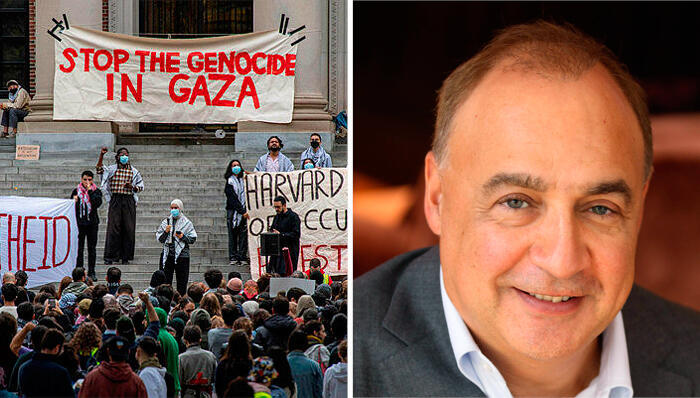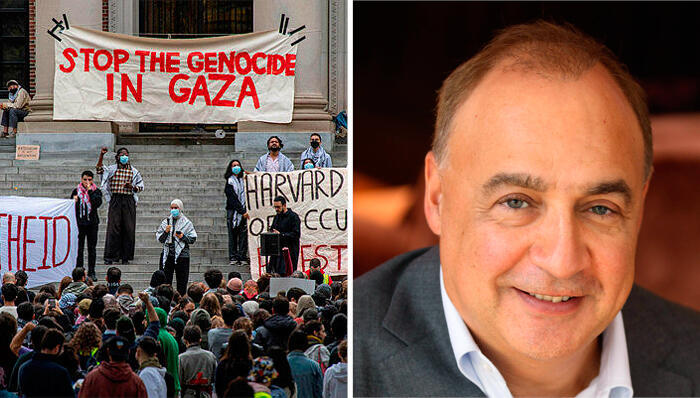
Billionaire Len Blavatnik suspending donations to Harvard due to anti-Semitism on campus
The Blavatnik family foundation has donated at least $270 million to the university to date
The list of donors abandoning Harvard University continues to grow, with the latest addition being billionaire Len Blavatnik, whose fortune is estimated at almost $40 billion. According to Bloomberg, Blavatnik's family foundation is halting its donations due to anti-Semitic incidents on campus. This decision is also influenced by President Claudine Gay's controversial testimony in Congress, where she asserted that calls for “genocide” against Jews do not violate Harvard’s code of conduct, instead, saying that it depended on the “context.”
Blavatnik, the controlling owner of Clal Industries, Nesher Israel Cement Enterprises, and Channel 13, is a graduate of the Harvard Business School. A source familiar with the matter revealed that he and his wife, Emily, are suspending donations until the university takes action against the prevalent anti-Semitism.
So far, the Blavatnik family foundation has donated at least $270 million to the university, with around $200 million transferred in 2019 to the School of Medicine (HMS) on campus, marking the largest donation in its history. In a review of a scientific symposium published in "Harvard Magazine" last month, Blavatnik's significant contribution to scientific research at the university was highlighted. A $10 million donation made by the foundation in 2009 was allocated to a cancer vaccine research laboratory and a biomedical incubator. In 2013, the foundation contributed $50 million to the university for the advancement of scientific research and drug development.
The Harvard Business School (HBS) annually awards the Blavatnik Fellowship in Life Science Entrepreneurship to alumni and Harvard-affiliated postdoctoral researchers. To date, recipients of the Blavatnik scholarship have founded 35 companies in the biomedical industries, including one focused on developing biological drugs for cancer, personalized oncology treatments, and a drug designed to treat cancer and neurodegenerative diseases.
Related articles:
Since the Hamas attack on October 7, several notable Harvard graduates have declared the suspension of donations until Harvard takes more decisive action against anti-Semitism. This criticism poses a threat to Harvard's reputation and its extensive alumni network, and it could potentially impact the financial situation of one of the oldest and wealthiest universities in the U.S., particularly at a time of declining investments and the potential reduction of federal support by Congress.
Among the donors who have announced the suspension of their contributions is the Wexner Foundation, Bill Ackman, and the couple Idan and Batia Ofer.
This response from donors comes at a time when Harvard is grappling with rising expenses, including salaries and maintenance. Operating expenses last year totaled $5.9 billion, with salaries and benefits for the 20,000 faculty members accounting for more than half of the budget. The university's endowment fund stood at $50.7 billion in June, before the abandonment of donors. During the last fiscal year, donations constituted 37% of revenue, making it the largest source of income.
Blavatnik, born in Odessa, was announced in 2021 as the richest man in Great Britain. He obtained citizenship and knighthood from Queen Elizabeth II in 2017. Blavatnik also holds American citizenship. He accumulated his wealth in Russia in the 1990s following the privatization of the aluminum and oil industries. In the last 20 years, he tripled his fortune.
